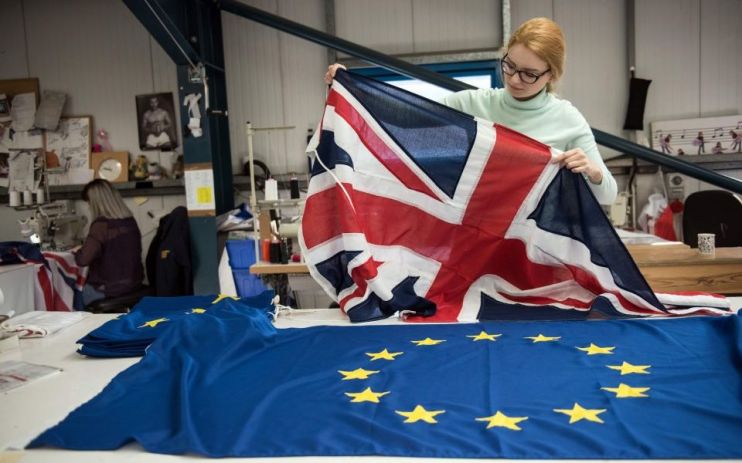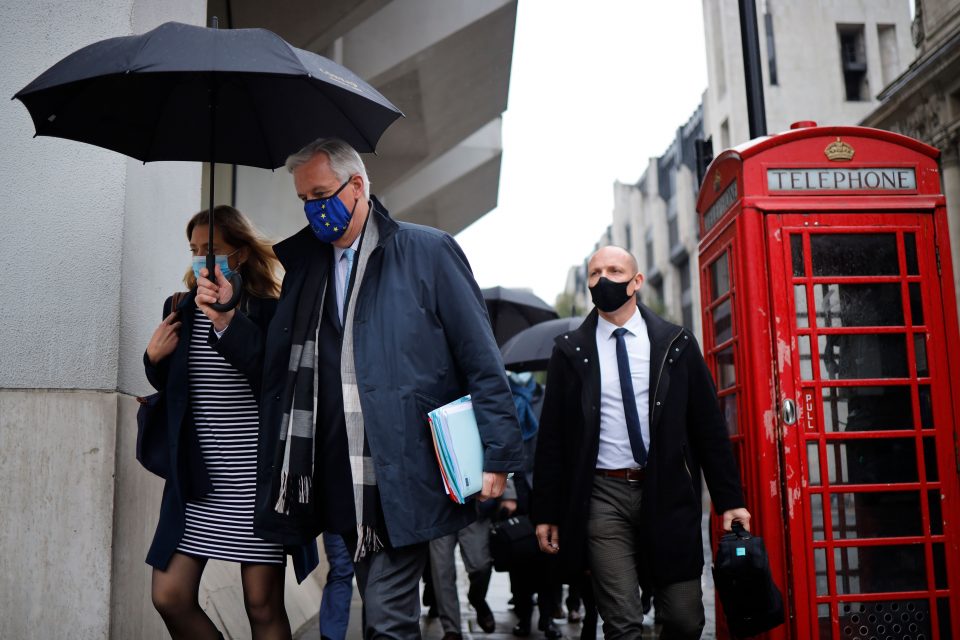90 per cent of UK trade not covered by free trade deals post-Brexit

Only 10 per cent of all UK cross-border trade will be covered by current free-trade agreements after 31 December, City AM understands.
Fifty-two countries currently have free trade deals in place with the UK for the end of the Brexit transition period. These agreements account for only 10 per cent of the UK’s total cross-border trade, according to last year’s figures from the Office for National Statistics (ONS).
The pressure is mounting on the government to secure a trade deal with the EU before January. EU negotiator Michel Barnier announced a “redoubling of efforts” when he arrived in London yesterday morning for new talks.
EU-UK trade accounts for half of overall UK trade and seven of the UK’s top ten trading partners are EU members.
Last month, the UK struck its first trade deal since Britain left the EU, namely with Japan. It has also signed a temporary agreement with Norway to ensure trade of goods can continue between the two nations in the case of a no-deal Brexit after 31 December.
WTO terms
Should the UK fail to secure any other free trade agreements before January, it does mean Britain may have to trade nearly entirely on WTO terms. These terms hardly cover trade in services, and could also mean high tariffs on UK exports.
When confronted by the findings, a spokesperson for the Department for International Trade told City A.M.: “For the first time in 50 years we are able to set our own trade policy. We have already made excellent progress in rolling over EU trade deals.”
“In under two years, the UK government has already signed or agreed in principle trade agreements with 52 countries. Total UK trade with these countries was worth £146bn in 2019, and we are now stepping up a gear.”
Biden administration
The US, the UK’s biggest trading partner, is still yet to agree on a free-trade deal with the UK. An advisor to the president-elect Joe Biden’s campaign made it clear the new Biden administration “will not prioritise” a UK-US trade deal early in his presidency.
Moreover, the Democrat would also face hurdles appointing his US trade representative to lead the talks as the Senate, which must vote through appointments, could be controlled by Republicans.
This casts uncertainty over whether the UK and US could secure an agreement by July next year, when the president loses the power to negotiate trade deals, under current US laws.

In denial
With less than two months until the Brexit deadline, some City insiders warn that London is in denial about what is to come.
Alison Horner, a tax partner at MHA MacIntyre Hudson, believes trading with Europe after Brexit, deal or no deal, will be more challenging than many businesses are currently realise or even willing to admit.
“Due to Covid-19 the majority of British companies involved in exporting to Europe have not been able to give Brexit the attention they should and unfortunately some are in denial about the scale of the challenge,” Horner told City A.M.